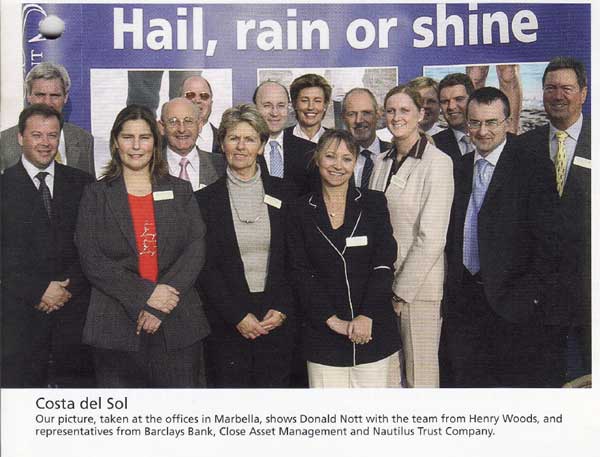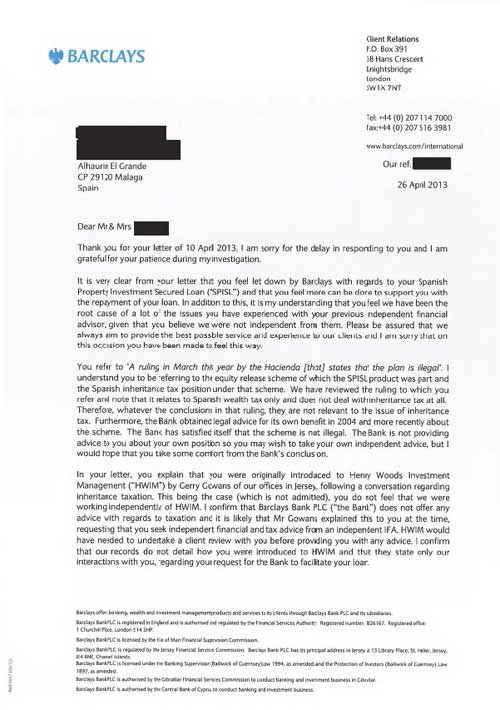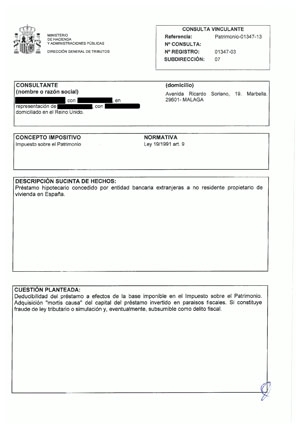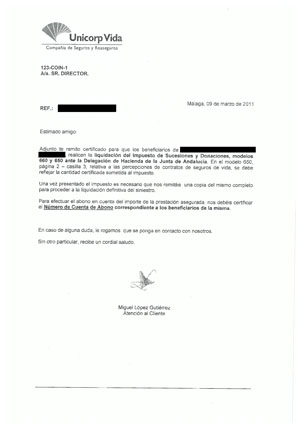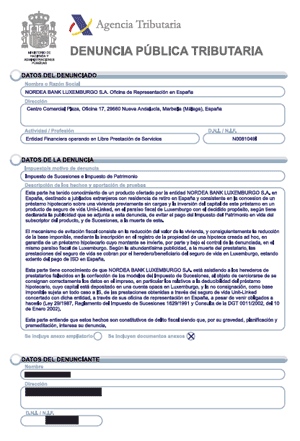ERVA could have not found a better word to describe the client that Mr. Caira represented in Spain: clandestine.
From his Bilbao office, this “contract negotiator” expert had wholly ommited the fact that his client, Surrenda-Link Mortgage Holdings, had no authorisation to operate in Spain because it lacked the required license by the Bank of Spain…without exception. This means that it was in breach of EU mandatory regulatory compliance with the host country, among other minor legals of obligatory observance.
Together with his pal Javier Bicarregui Garay, another submissive lawyer who in turn represented -remotely- the victims of this fiasco devised by Charles “Charlie” Walton (without ever meeting them, talking to them or even the basic thing such as checking out the operation), with a power of attorney, tens of mortgage loans were signed off on distant properties via a servile happy-to-please Bilbao Notary…all of them, without exception, for an illegal investment purpose to evade Spanish taxes.
Mr. Bicarregui Garay was granted, according to the press, the Order of the British Empire.
It is strongly recommended that anyone that had given a power of attorney to Mr. Bicarregui Garay inmediately revokes it by formally signing a revocation of power of attorney public document, at the closest Notary Public.

